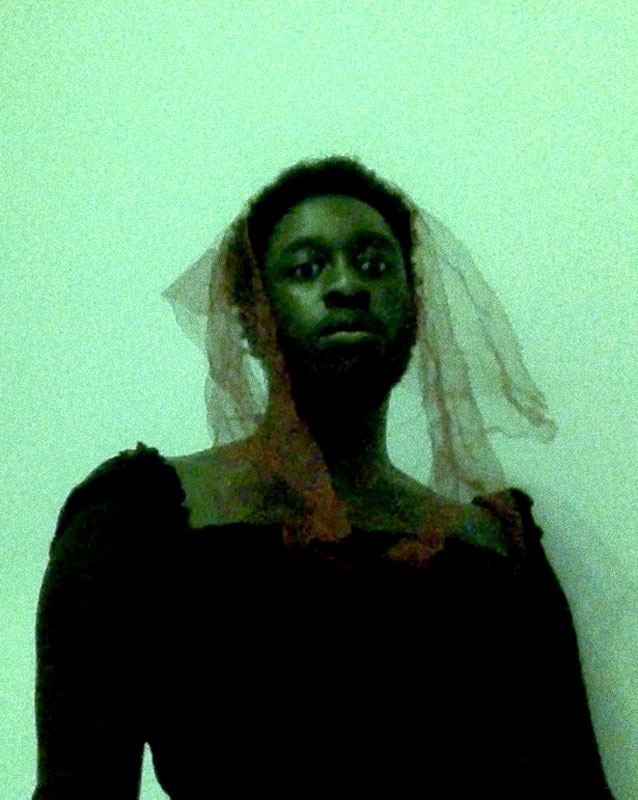Talking with Marv Huongbo, it’s impossible not to be excited about what they have to say. Talking to them, listening to their music, seeing their photography, attending community events they’ve coordinated — it’s obvious that they approach any type of interaction with intent and care. His genuity isn’t plastered. He’s not trying to impress upon you how much he cares, he simply cares. And doesn’t have patience for not expressing it. As they put it, “I just wanna be a good person. I don’t care about being cool.” They believe that “what you do really reflects who you are.”, and their work reflects this authenticity. It is never farcical, nor does it stray far from their family and personal history. Being a Black, queer person, being a person who was born in a tight knit community in East Africa (and has since lived across the western world), being exposed to many different life experiences — these have all been imprinted upon Marv’s creative practice. Being also young — they’re 21 — that history is immediately grounding, contextualizing, and fascinating. They’ve said: “I’m so fucking obsessed with knowing history and knowing my history,” and that history continues to be a huge inspiration for them.
“Nivram” is Marv’s music moniker for their ambient hip hop and rap project. Through it, they’ve been able to flex the processing of their emotions. Where they can be like. “‘I love you, but fuck you. Look what you not only put me through, but my people through.'” The music that Marv makes with Nivram works like therapy by “writing about stuff and releasing it.” Like any effective therapy, what they’re writing about and releasing isn’t self-contained; they’re navigating their emotions as they feel them, but also through the broader waters of their family story. Always aware of how they fit into a larger context, historically and communally.
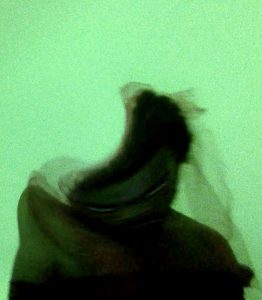
Marv works in many different mediums to give a voice to the many different parts of themself — but communality is always woven into their practice. They often use their photography as a conduit to raise awareness of their community. Their style is inspired by the African family photos they grew up with: photos of their mother, their aunts and uncles, and themself. These photos “remind [them] of who [they are] whenever [they’re] lost.” For them, photography is sentimental. It documents people and community. They use that to uplift their peers and give their friends a platform; they explain “When I take photos of my friends, I want people to know who they are. I want people to know what they do.” They want to document their friends, alongside themself — always aware of the representation they were missing as a kid.
Their latest photo series, Home is Not a Place, it’s a Feeling, was sparked by the discovery of the self-timer button on their camera. It expresses a reflection Marv has had for a long time — having had to move a lot growing up, and that kind of transience can feel untethering; “So many of my friends have their childhood homes that they can always go back to. A lot of my white friends have lived in the same house their entire lives. For me, my friends are my home, my friends’ homes are my homes.” This series documents Marv’s feelings about beauty and their relationship with having, and how having is related to wanting. It’s accompanied by a list of what they pray for, “things [they]’ve never had, things [they] have now, and things that [they] will have.” Something they haven’t always had is the privilege to “see [themself] in a lot of artwork. [They] didn’t see Black joy in a lot of artwork” and photographing it now both honors that past loss and celebrates its gain.
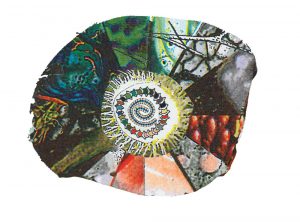
Working towards those havings, Marv started U.N.I.T.Y. Collective to create a space where BIPOC queer and trans people can “meet other BIPOC queer and trans people they would’ve never met before.” From a place of genuine care, Marv believes community is about making connections that enable sharing resources, to them it’s fundamentally “being like ‘Oh, you need this? I know a person, let me introduce you.'” U.N.I.T.Y. had their first show in the midst of Covid on July 1. The event’s germ was as a community photoshoot project (Unity in Quarantine, in which Marv photographed and interviewed friends and colleagues) to counter the necessary isolation of lockdown and social distancing. The shoot became an event showcasing BIPOC, queer, and trans artists in Vancouver. Marv wanted to show that “with BLM, and the pandemic, Black joy still exists and BIPOC folks hanging out & having fun is still a thing.” The all BIPOC Lineup — comprised of Nivram, HoodieBrowns, DeadnYoung, Dani Your Darling, DJ Brat, and Della Orrey — is an essential feature to Marv’s vision for U.N.I.T.Y.’s events. The show had a 35 person capacity and was streamed over Zoom. For the physical audience, Marv prioritized Black, queer and trans folks “because we need spaces that are ours, period.”
That need, and U.N.I.T.Y. itself, aren’t ideas limited to Vancouver. As a network for resource sharing, Marv wants to use U.N.I.T.Y. to “be putting on more younger people, and people of color who come from the suburbs.” People who are excluded from the resources that are centralized, and hoarded, by the city’s white-elite.
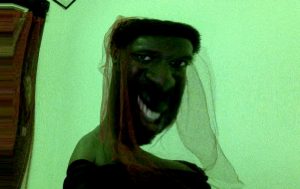
The scope of this value is extended to not just through Vancouver-adjacent spaces: “in the next year what I want to see, [and] in the world in general, is more community.” In keeping with this hope, U.N.I.T.Y.’s future isn’t constrained to North America. Inspired by their aunt’s artist residency in Kenya, and their mother’s nonprofit Mamba Support Society, Marv wants to “take U.N.I.T.Y. to communities around the world who don’t have access” — especially those in Africa. They’ve seen how, because of the ways of colonialism, capitalism and white supremacy have shaped western cultures’ perception of people in Africa, “people don’t realize that there’s an underground scene in Africa too. There’s queer and trans people in Africa too. People assume that Africa is this jungle with lions and it’s like — there are cities in Africa. There are people who DJ, there are people who are in the scene.”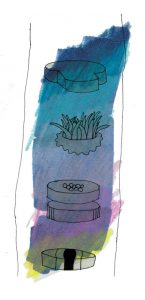
For now, U.N.I.T.Y. is shaping into a platform to elevate local artists’ work. They’ve put out a call for submissions to post on their Instagram, but mainly Marv’s “waiting for the pandemic to end because [their] whole life revolves around not being in a pandemic,” waiting and working on their music, which Marv’s been developing for years. They’ve been feeling “scared to put it together, but it’s going to be so exciting because [they] have such a good feeling that something so beautiful will come out of it.” Recently, they’ve been struck by the word sublime, to them, “it’s very noble, it’s just beauty. That’s where my beauty comes from.” Their sublimity is their authenticity and care that makes their vision for community so strong.
To stay up to date with their work or get in contact, follow Marv @marvsflm.


